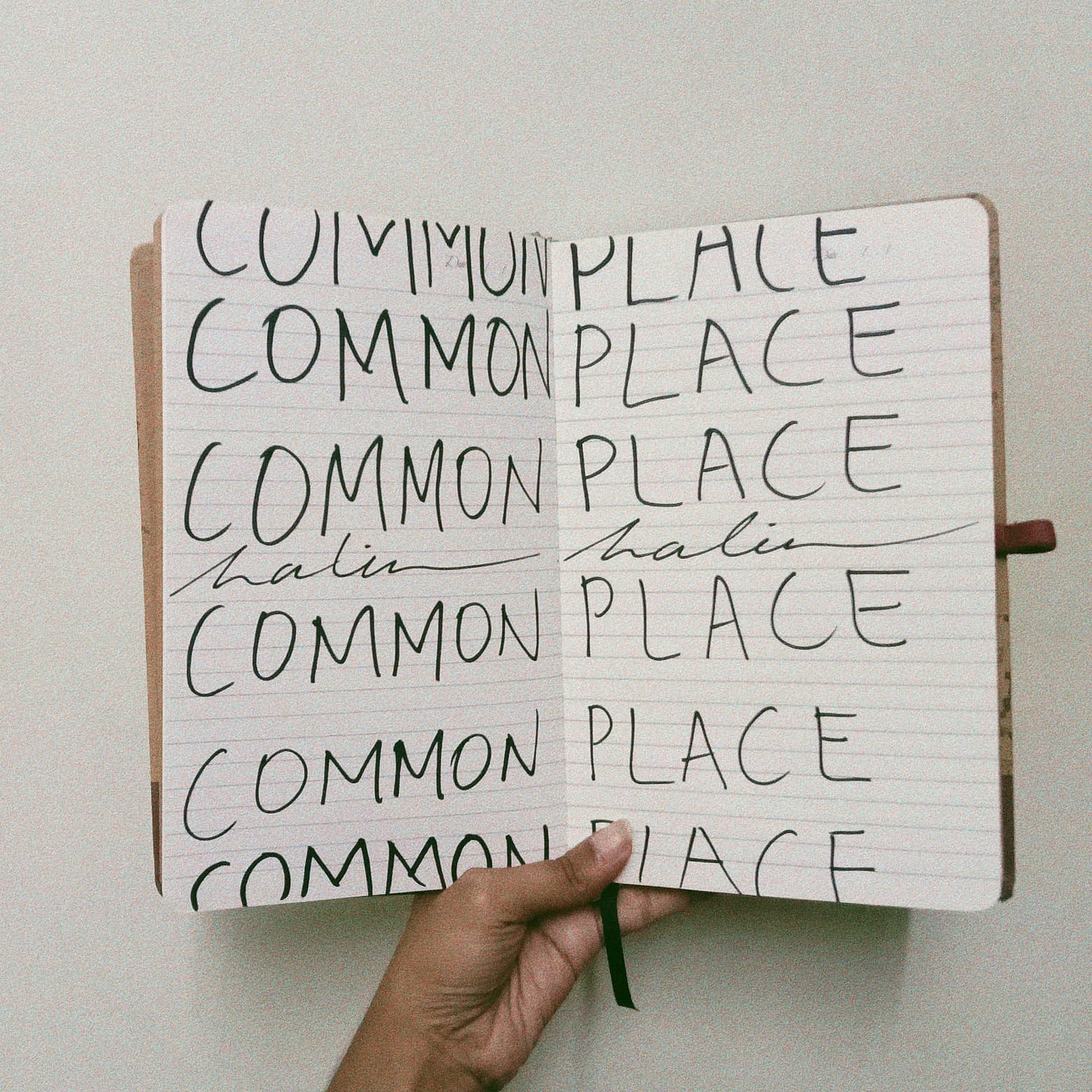Dear reader,
Hello. Long time, no see because I was busy with the work desk and exams. It’s glad to be back! It’s raining heavily here. I am writing this on a holiday as the entire city has been issued a red alert.
Today’s post is about commonplacing and commonplace books. Before you get carried away by the term, know that it might be very common to you than it seems!
Writing is an ordinary, everyday thing. But its possibilities and methods are endless. Commonplacing is one such possibility and practice, that actually dates back to centuries. But what’s it exactly?
Commonplace means a general topic. A commonplace book means “a book into which notable extracts from other works are copied for personal use.”

This practice was highlighted by the famous philosopher Aristotle, the statesman Cicero and several others. It was prominent from antiquity to Renaissance and till the 19th century. Several writers and poets had their own commonplace books, wherein they would note down bits and pieces of information, quotes, proverbs, passages, poetry, etc. as and when they came across them. Every commonplace book will be different. A scientist’s commonplace book may have the periodic table or other scientific information. Books of recipes passed down from generations can also be commonplace books. Some people followed a formal, organized method of commonplacing. And some others followed no hard and fast rule. As mentioned earlier, the possibilities are endless. Twain, Milton, Woolf, Thoreau, Emerson, and many more people had their own commonplace books. Some of them were also published. As literary references, Arthur Conan Doyle’s sleuth Sherlock Holmes is mentioned to maintain his commonplace books wherein he recorded reports and old cases to refer back to them later.
“A commonplace book is what a provident poet cannot subsist without, for this proverbial reason, that “great wits have short memories:” and whereas, on the other hand, poets, being liars by profession, ought to have good memories; to reconcile these, a book of this sort, is in the nature of a supplemental memory, or a record of what occurs remarkable in every day’s reading or conversation. There you enter not only your own original thoughts, (which, a hundred to one, are few and insignificant) but such of other men as you think fit to make your own, by entering them there. For, take this for a rule, when an author is in your books, you have the same demand upon him for his wit, as a merchant has for your money, when you are in his.”
- Jonathan Swift
Speaking of my experience, it’s a relatively new term to me. But the practice isn’t new to me. It’s amazing when I just realized that I have been commonplacing for the past few years without knowing that it had an actual term for it. My commonplace books included my favourite quotes from books and movies, poetry, and passages fetched from here and there. You may be having one yourself too! If not, you might be interested to start maintaining one!
Some quick links:
I recently watched this youtube video on commonplacing and found it noteworthy. Here’s the link!
Woolf’s Hours in a Library is a wonderful essay that talks about notebooks.
Joan Didion’s On Keeping a Notebook can’t be forgotten here. Highly recommended!
That’s all folks. Take this as a sign to start your own commonplace book if you haven’t one!
Until next week,
halin




Hey! I am unable to access Virginia Woolf’s essay - Hours in the library. Can you please share some other link? Thankyou!